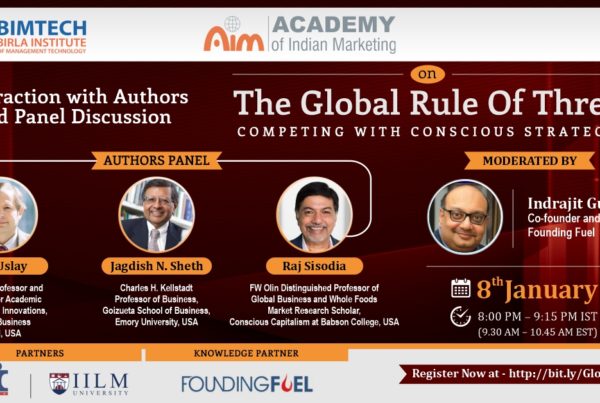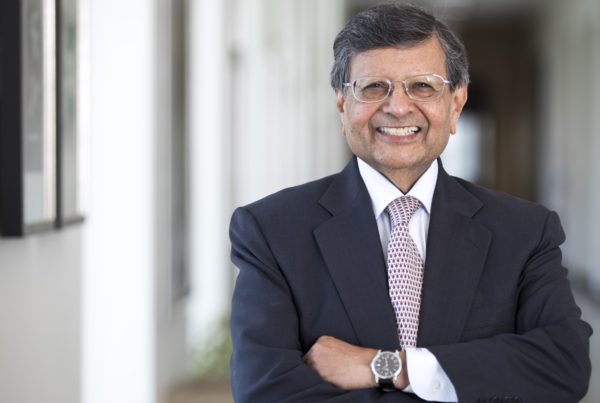Published: Jul 18, 2007 in Knowledge@Emory
At one time, Sony was revered as one of the best companies around. A world-beater that created such epoch-defining innovations as the cheap transistor radio and the Walkman, Sony was both feared and admired. But that was then. In recent years, the firm has floundered.
Its latest challenge: only weeks after introducing a handheld version of its PlayStation 2 game that the company saw as a key new product in its electronics division, a U.S. District Court judge in California ruled that Sony had infringed on two patents held by Immersion, a developer of the ‘touch feedback’ technology used in its PlayStation system.
The judge ruled that Sony owed the developer a total of $90 million for past damages and granted a permanent injunction that would bar the U.S. sale of any games or game controllers that infringe on the developer’s patents, according to wire reports. However, the judge also granted Sony a stay in that judgment until the company has a chance to appeal.
But PlayStation addicts probably don’t need to consider forming smuggling rings just yet. William Carney, a professor of corporate law at Emory University’s School of Law, says he expects that Sony will settle the suit before that order goes into effect. “Typically, most business litigation is settled,” he states. “We’re only talking about price.”
Now, Carney says, Sony just needs to calculate its odds of winning on appeal and how much not having that technology on the system would hurt the firm.
Other problems facing the 59-year-old Tokyo-based giant may prove less simple to resolve. In recent years the firm has been barely profitable. Last year, Sony generated only a 2% profit at a time when many other firms were doing far better. To try to turn itself around, the firm has made a bold move in tapping longtime Sony executive Sir Howard Stringer as its next CEO.
Most recently the chairman and CEO of Sony Corporation of America, Stringer oversaw much of the firm’s entertainment portfolio, which includes movie and music production. The Welsh-born U.S./United Kingdom citizen spent the first 30 years of his career at CBS. Stringer began as a journalist and worked up through the ranks to president, the role in which he served in his last seven years at the company.
That might sound like a perfectly ordinary choice – and it would be for a U.S. company, where foreign-born CEOs are relatively common. In ethnically homogenous Japan, however, tapping a foreigner is still an extremely unusual move.
While Japanese firms have always been open to the knowledge of other countries – for example, Sony’s first big hit, the transistor radio, was based on technology licensed from AT&T’s Bell Labs — only a few Japanese companies have ever turned to foreigners for their leadership. However, the recent successes of a few foreigners such as Carlos Ghosn, the Brazilian-Lebanese executive who turned Nissan Motors around for Renault, may have opened the window up a bit more to outsiders.
In this, Sony and Japan may just be catching up with the Western corporate world. Robert Kazanjian, a professor of organization and management at Emory’s Goizueta Business School, says that many multinationals increasingly look outward for executives. He notes that global firms such as Coca-Cola, Unilever, and Nestle, have historically been good at leveraging executive talent wherever it happened to live. Today, multinational companies frequently see their foreign divisions as “an incubator… for management talent,” he says.
Deborah Valentine, a senior lecturer in communication at Goizueta and an expert on cross-cultural communication, says that managing a company that comes from such a different cultural background is likely to prove difficult for Stringer. The Japanese culture is extremely different from the American and British business culture, she says.
Japanese people tend to be much more reserved and indirect, for example. If 75% of U.S. communication is nonverbal, she says, in Japan, the number is probably closer to 90%. “A lot is understood,” she says.
No, for example, is almost never phrased as a flat-out no. “They’re not going to say ‘no, I can never do that.’ They’re going to say, ‘that may be difficult,’” she says.
For Valentine, the fact Stringer does not speak Japanese and does not plan to move from his current base in New York to Tokyo suggests that there may be something else in the promotion that’s not apparent on the surface. “He’s got the title, but it doesn’t ring true to me,” she says.
“My gut instinct is that there’s something that we don’t see going on here,” she says. “I wonder if he is more honorific or titular rather than the real power.” Perhaps Stringer’s real role will be primarily to provide the company with an effective spokesman for its Western investors and customers, she speculates.
Another unusual factor about Stringer’s candidacy – the fact that he is a media executive, in a firm that has proud roots in its engineering prowess – may prove more important to the $36 billion conglomerate than his nationality in the years to come.
Stringer’s background would seem tailor-made for one part of what Jagdish Sheth, a corporate strategist and professor of marketing at Goizueta, believes is needed to move ahead: a deeper emphasis on content. Sony “needs, in particular, to find more ways to serve as content aggregators, as it does with the PlayStation gaming platform, for example,” he says.
In addition, Sheth says, the firm needs to develop a much narrower focus as it moves ahead. First, Sony should focus on products for the fast-growing developing markets, such as China, the ASEAN block countries, and maybe India, all markets where the competition among consumer electronics companies is less entrenched. “Competition is still unorganized, it’s relatively weak. The distribution system is still not in place,” he explains.
The firm needs to change in other ways as well, in Sheth’s view. He believes that Sony is overly diversified at this point, and must focus on fewer products. Today, the highly diversified company competes in areas as disparate as movie production and PC sales.
“The point is that they really need to reduce the number of competitive fronts that they are encountering,” Sheth says. The problem, he notes, is not just the variety of products, but the fact that the Sony team faces a completely different set of competitors in many of their lines.
If Stringer does decide to sell parts of the Sony empire, a former investment banker who is now an adjunct faculty member in organization and management at Goizueta says his timing looks good. Many companies are “awash with cash” and at the same time, a number of private equity funds have raised huge funds that they are looking to invest, according to Edward Hess. Right now, Hess says, there is “more money than deals” to go around.
Yet even as the firm trims its portfolio, Sheth says it needs to try to regain one of its original strengths: creating great low-cost products for the emerging market.
“Sony began with the transistor radio,” he says. A revolutionary product, the transistor radio was much cheaper than the traditional vacuum-tube radios, and because it was battery-powered, could be used even in markets without easy access to electricity, according to Sheth. Through cheap but innovative products like transistor radios, Sony “really developed a great company for creating value for mass market,” he explains.
Sheth says that the company should consider developing products that again focus on those basic needs. One strategy: follow the lead of HP and Phillips and create a separate venture arm that focuses on new products suited especially to the 80% of the world that lives at the bottom of the economic pyramid.
Such an operation would be “really going back to their roots,” Sheth says, noting that the entertainment giant has forgotten how important developing inexpensive but innovative products was to its success.
For his part, Stringer seems convinced that the 162,000-employee company needs to make some major changes right away. “You can kill a company with kindness,” he recently told the Wall Street Journal. “It’s all very well to understand the values and aspirations of a whole company, but if the company is in trouble the fact that you’re nice to people isn’t going to help it survive. All these (divisions), especially consumer electronics, they’ve got a fight on their hands!”
Originally published in April 2005.





